
Paul Laverty discusses his thirty years of collaboration with Ken Loach.
It's a brisk March morning in Luxembourg, and my discussion with Paul Laverty shifts to Cantona. “Do you recall that goal he scored with Brian McClair?” A classic, I concur. “He executed that beautiful 1-2, glanced up, struck the ball,” Laverty recounts, mimicking its trajectory, “and then just stood there with his chest out. He embodied everything you could aspire to be.” I was interested in how Laverty, who penned Ken Loach’s Looking for Eric, where Cantona appeared as himself, approached the actor regarding the script. “I thought, ‘What if this little guy, who nobody recognizes, is ignored by his children and feels utterly lost?’ I asked Eric, ‘How would it be if he occasionally smoked a spliff when feeling down and talked to you when life becomes overwhelming?’ He just burst out laughing.”
No filmmaker matches Ken Loach’s record of fifteen films in the Cannes competition, an impressive feat that started with Looks and Smiles in 1981 and reportedly concluded with The Old Oak in 2023. Laverty, originally from India and raised in Scotland, wrote 11 of those films, including The Wind That Shakes the Barley and I, Daniel Blake, which earned Loach his two Palme d’Ors, equaling his record. The writer-director duo has collaborated on 14 projects since Laverty first approached Loach with Carla’s Song nearly 30 years ago. Many of these films I cherish, and some I hold in high esteem.
We met at the Luxembourg City Film Festival back in March, where Laverty was part of a prominent jury: Mohammad Rasoulof, Trine Dryholm, Albert Serra––what I would give to eavesdrop on that conversation. He had arrived earlier that day from Edinburgh, bringing a box of Scottish shortbread for the festival team. I learned he opted for economy class despite the festival’s offer of business class. Sitting across from him in a comfortably plush backroom of the Hotel des Place d’Armes, none of this news surprised me. Laverty is kind, genuine, formidable, and incredibly funny—perhaps the most approachable person I have ever interviewed. Over the course of half an hour, we discussed his early experiences in the industry, a brief encounter with Abbas Kiarostami, frustrating Michael Gove, and, naturally, The Old Oak, their determined farewell.
The Film Stage: Hi, Paul. It’s great to meet you.
Paul Laverty: Hi, Rory. Goodness, this place looks like a bordello.
One wonders what transpires in this section of the hotel.
Aye. [laughs] But you’d be accustomed to that in Berlin. It’s a fine city to live in.
Ah, yes. It's been years. It has changed a lot.
I was there a long time ago, when Kreuzberg was just starting to evolve. I assume it has all gentrified now.
To some extent. The political climate is also uncomfortable.
Indeed. It’s quite fascinating to be there at the moment. Everything seems precarious. Very unstable. Dangerous.
It feels as if the rules have shifted.
Well, they’ve effectively disregarded international law, to begin with. However, I felt uplifted seeing the former Filipino president heading to The Hague. Hopefully, some other rogues will follow. Did you hear about that? His name is Duterte. He was responsible for about 30,000 killings. He projected that tough, macho persona, saying that the fish in Manila Bay would grow fat on the corpses of the deceased. It’s fantastic he’s out of the picture.
You spent some time in Central America before teaming up with Loach, right?
Yes, three years. Mostly in Nicaragua, along with El Salvador and Guatemala. Guatemala was deeply entwined in the war concerning the Contras. You’re rather young, so you might not remember those events.
I’m somewhat familiar with the history.
It’s a long tale and now a tragedy, considering what could have been had the country been left alone. In 1979, the revolution took place. They managed to educate their population and eradicate polio—not a bad start—but then came the US, the CIA, and the Contras: a relentless campaign of terror. At that time, I was in my 20s, so it was incredibly enlightening to witness, and that’s where the inspiration for the first film came from.
You also had a small part in Land and Freedom, just prior to that, didn’t you?
Well, let's not dwell on that. [Laughs] It was enjoyable; I met a lot of people and my partner there. Ken simply invited me along.
Where did you first encounter Ken?
Upon returning from Nicaragua, I reached out to everyone—I was determined to get the film produced—but Ken was the one who replied. Most people didn’t. Why would
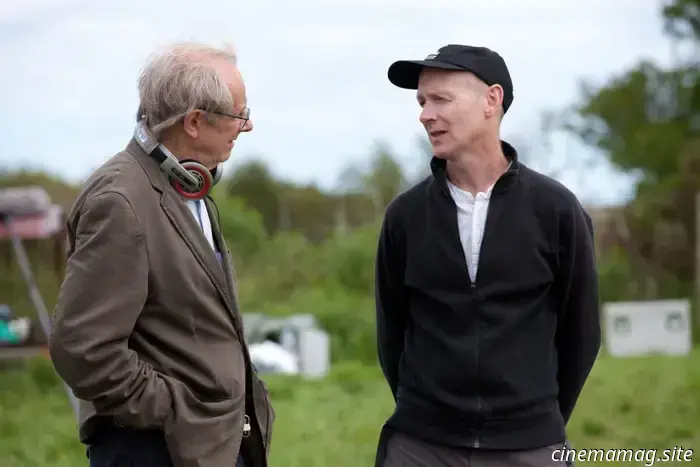

Other articles
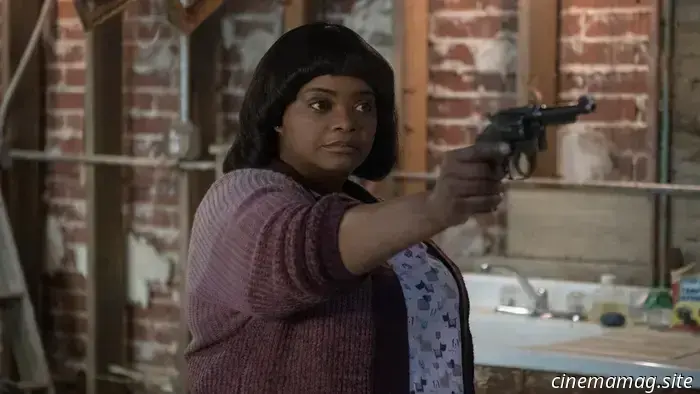 Blumhouse is set to rehire Octavia Spencer for the sequel to Ma.
Academy Award-winning actress Octavia Spencer is preparing to return to one of her most memorable roles with the announcement that she will appear in a sequel to the 2019 horror film, Ma. Spencer collaborated with her director from The Help, Tate Taylor, to guide the revenge thriller to a global box office total of $60 million. What contributed to that […]
Blumhouse is set to rehire Octavia Spencer for the sequel to Ma.
Academy Award-winning actress Octavia Spencer is preparing to return to one of her most memorable roles with the announcement that she will appear in a sequel to the 2019 horror film, Ma. Spencer collaborated with her director from The Help, Tate Taylor, to guide the revenge thriller to a global box office total of $60 million. What contributed to that […]
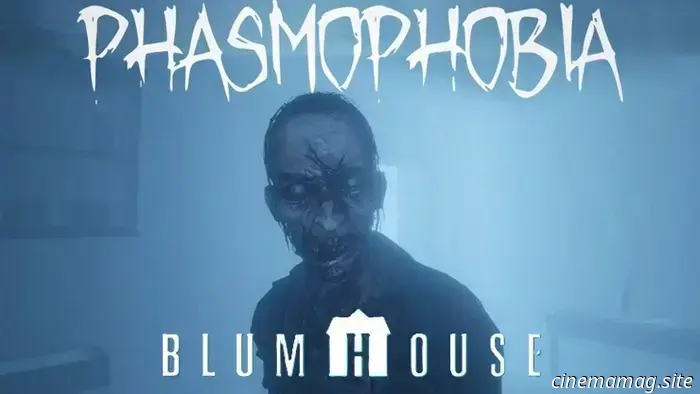 Blumhouse and Atomic Monster are working on a Phasmophobia movie.
The immensely popular online ghost-hunting game Phasmophobia is poised to be adapted for the big screen by the horror production companies Blumhouse and Atomic Monster. According to Deadline, this announcement was made during Blumhouse’s inaugural The Business of Fear event in Hollywood. Launched in 2020 by the British indie game studio Kinetic Games, Phasmophobia can be played solo or in…
Blumhouse and Atomic Monster are working on a Phasmophobia movie.
The immensely popular online ghost-hunting game Phasmophobia is poised to be adapted for the big screen by the horror production companies Blumhouse and Atomic Monster. According to Deadline, this announcement was made during Blumhouse’s inaugural The Business of Fear event in Hollywood. Launched in 2020 by the British indie game studio Kinetic Games, Phasmophobia can be played solo or in…
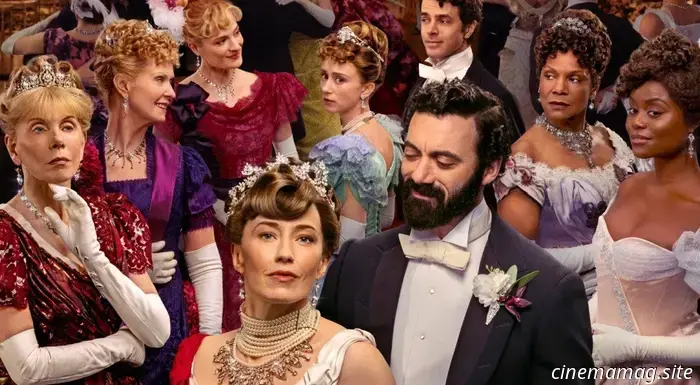 A new trailer for season 3 of The Gilded Age has been released.
Prior to the premiere of its third season on Max later this month, a new trailer has been released for the period drama series The Gilded Age. The season 3 cast features Carrie Coon, Christine Baranski, Cynthia Nixon, Morgan Spector, Louisa Jacobson, Denée Benton, Taissa Farmiga, Harry Richardson, Blake Ritson, Ben Ahlers, Ashlie Atkinson, Dylan Baker, […]
A new trailer for season 3 of The Gilded Age has been released.
Prior to the premiere of its third season on Max later this month, a new trailer has been released for the period drama series The Gilded Age. The season 3 cast features Carrie Coon, Christine Baranski, Cynthia Nixon, Morgan Spector, Louisa Jacobson, Denée Benton, Taissa Farmiga, Harry Richardson, Blake Ritson, Ben Ahlers, Ashlie Atkinson, Dylan Baker, […]
-Movie-Review.jpg) Consecration (2023) - Film Review
Consecration, 2023. Directed by Christopher Smith. Featuring Jena Malone, Danny Huston, Thoren Ferguson, Will Keen, Janet Suzman, Ian Pirie, Steffan Cennydd, Angela White, Kit Rakusen, Eilidh Fisher, and Jolade Obasola. SYNOPSIS: Following the supposed suicide of her priest brother, Grace journeys to the secluded Scottish convent where he met his end. Doubting the Church’s […]
Consecration (2023) - Film Review
Consecration, 2023. Directed by Christopher Smith. Featuring Jena Malone, Danny Huston, Thoren Ferguson, Will Keen, Janet Suzman, Ian Pirie, Steffan Cennydd, Angela White, Kit Rakusen, Eilidh Fisher, and Jolade Obasola. SYNOPSIS: Following the supposed suicide of her priest brother, Grace journeys to the secluded Scottish convent where he met his end. Doubting the Church’s […]
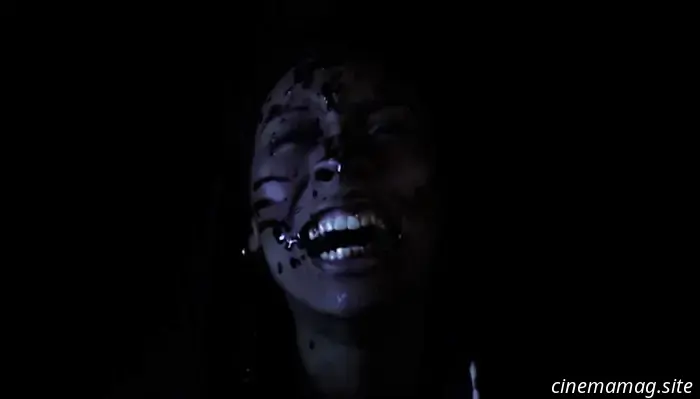 Terror Films has released a trailer for the indie horror movie The Woods.
Terror Films has released a poster and trailer for the upcoming horror film The Woods, written and directed by Sarah Lyons. The story revolves around a young woman who shares the account of her friends' deaths during a camping trip while appearing on a true crime podcast. The cast features Taylor Harris-Butler, Samantha Evans, Troy Tripicchio, and Jakob Martinez Cooper; […]
Terror Films has released a trailer for the indie horror movie The Woods.
Terror Films has released a poster and trailer for the upcoming horror film The Woods, written and directed by Sarah Lyons. The story revolves around a young woman who shares the account of her friends' deaths during a camping trip while appearing on a true crime podcast. The cast features Taylor Harris-Butler, Samantha Evans, Troy Tripicchio, and Jakob Martinez Cooper; […]
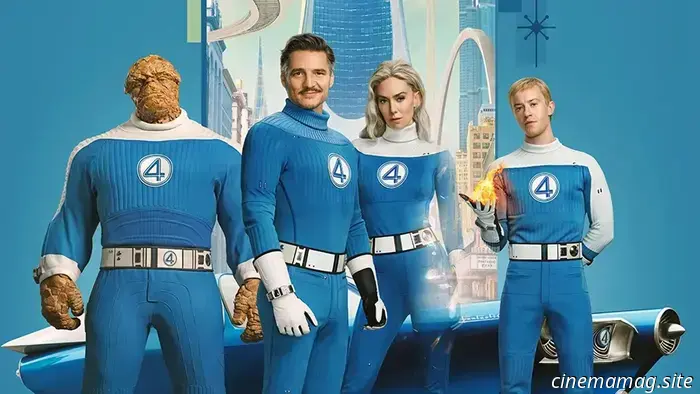 The Fantastic Four: First Steps releases a new trailer and posters as ticket sales commence.
Tickets are now available for The Fantastic Four: First Steps, and a new trailer has been released online for Marvel Studios’ film that kicks off Phase Six. This trailer offers another glimpse of Marvel’s First Family as they gear up to confront the formidable, insatiable space deity Galactus and his herald, Silver Surfer. Take a look below […]
The Fantastic Four: First Steps releases a new trailer and posters as ticket sales commence.
Tickets are now available for The Fantastic Four: First Steps, and a new trailer has been released online for Marvel Studios’ film that kicks off Phase Six. This trailer offers another glimpse of Marvel’s First Family as they gear up to confront the formidable, insatiable space deity Galactus and his herald, Silver Surfer. Take a look below […]
Paul Laverty discusses his thirty years of collaboration with Ken Loach.
It's a chilly March morning in Luxembourg, and my chat with Paul Laverty has shifted to discussing Cantona. “Do you recall that goal he netted, alongside Brian McClair?” I nod, acknowledging it as a classic. “He executed that beautiful 1-2, glanced up, struck the ball,” Laverty describes, whistling the trajectory, “and then simply stood there with his chest puffed out. He
